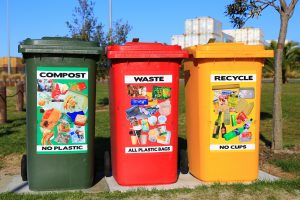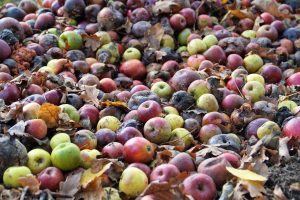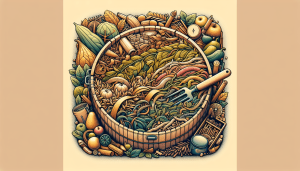In our journey towards a more sustainable lifestyle, many of us have wondered about the best ways to handle food waste. Spoiled food, in particular, often poses a dilemma: should we toss it or turn it into compost? In this article, we’ll explore the benefits and considerations of composting spoiled food, offering practical tips to help ensure that even our waste contributes to a healthier planet. Let’s dig in and discover how we can turn what would be trash into treasure for our gardens. Have you ever opened your refrigerator to discover a forgotten bag of wilted lettuce or a container of moldy leftovers and wondered, “Can I compost spoiled food?” We’re here to tell you that you’re not alone in your curiosity, and the answer might be more encouraging than you think.
Understanding Composting Basics
Composting is nature’s way of recycling organic materials into a rich soil amendment known as compost. This process involves microorganisms breaking down organic matter into a nutrient-rich substance that benefits the soil.
What Can Be Composted?
Generally, anything that was once living can be composted. This includes fruit and vegetable scraps, coffee grounds, eggshells, yard trimmings, and even paper products. However, many of us wonder where spoiled food fits into this scenario.
Green and Brown Materials
Composting effectively requires a balance of green and brown materials. ‘Green’ materials are rich in nitrogen, while ‘brown’ materials are rich in carbon. Maintaining a healthy ratio helps the microorganisms break down your compost pile efficiently.
| Green Materials (Nitrogen) | Brown Materials (Carbon) |
|---|---|
| Fruit and vegetable scraps | Fallen leaves |
| Coffee grounds | Straw |
| Grass clippings | Wood chips |
| Manure (herbivores only) | Cardboard |
The key is to balance these elements to ensure that the compost pile doesn’t become too soggy or too dry, which can hinder decomposition.
The Science Behind Spoiled Food
Spoiled food is already in a state of decomposition, making it seem like a perfect candidate for composting. However, it’s essential to understand the science behind why food spoils in the first place.
Why Food Spoils
Food spoils due to the growth of unwanted bacteria, yeast, and mold. While this spoilage makes food undesirable for consumption, it doesn’t mean the food can’t further decompose effectively in a compost pile.
Food Spoilage and the Compost Pile
Surprisingly, the microorganisms responsible for composting can be even more effective than those that cause spoilage. Composting utilizes beneficial bacteria, fungi, and other organisms that break down organic matter quickly and efficiently, turning spoiled food into valuable compost.

Pros and Cons of Composting Spoiled Food
Like anything, composting spoiled food comes with its advantages and disadvantages. Understanding these factors helps us make informed decisions about incorporating spoiled items into our compost piles.
Advantages
- Reduces Waste: Composting spoiled food decreases the amount of waste ending up in landfills.
- Rich Nutrients: Spoiled food still contains valuable nutrients that can enrich compost.
- Natural Process: It mimics natural processes, making us feel more connected to our environment.
Disadvantages
- Attracts Pests: Spoiled food, especially if not properly managed, can attract pests like rodents and insects.
- Odors: Decomposing spoiled food can produce unpleasant odors if not balanced correctly with brown materials.
- Pathogens: Spoilage can sometimes introduce harmful pathogens. Ensuring your compost pile reaches high temperatures can mitigate this risk.
Best Practices for Composting Spoiled Food
While it’s generally okay to compost spoiled food, being aware of best practices can help us manage our compost piles more effectively.
Balance Green and Brown Materials
To compost spoiled food effectively, ensure that you balance it with an adequate amount of brown materials. This prevents the pile from becoming too wet and creating unpleasant odors.
Chop Your Materials
Chopping or shredding spoiled food into smaller pieces can speed up the decomposition process. It increases the surface area for microorganisms to work on, accelerating the breakdown process.
Aerate Your Compost Pile
Turning the compost pile regularly introduces oxygen, which aids aerobic microorganisms in breaking down the organic material. This aeration also helps mitigate odors and hastens the decomposition process.
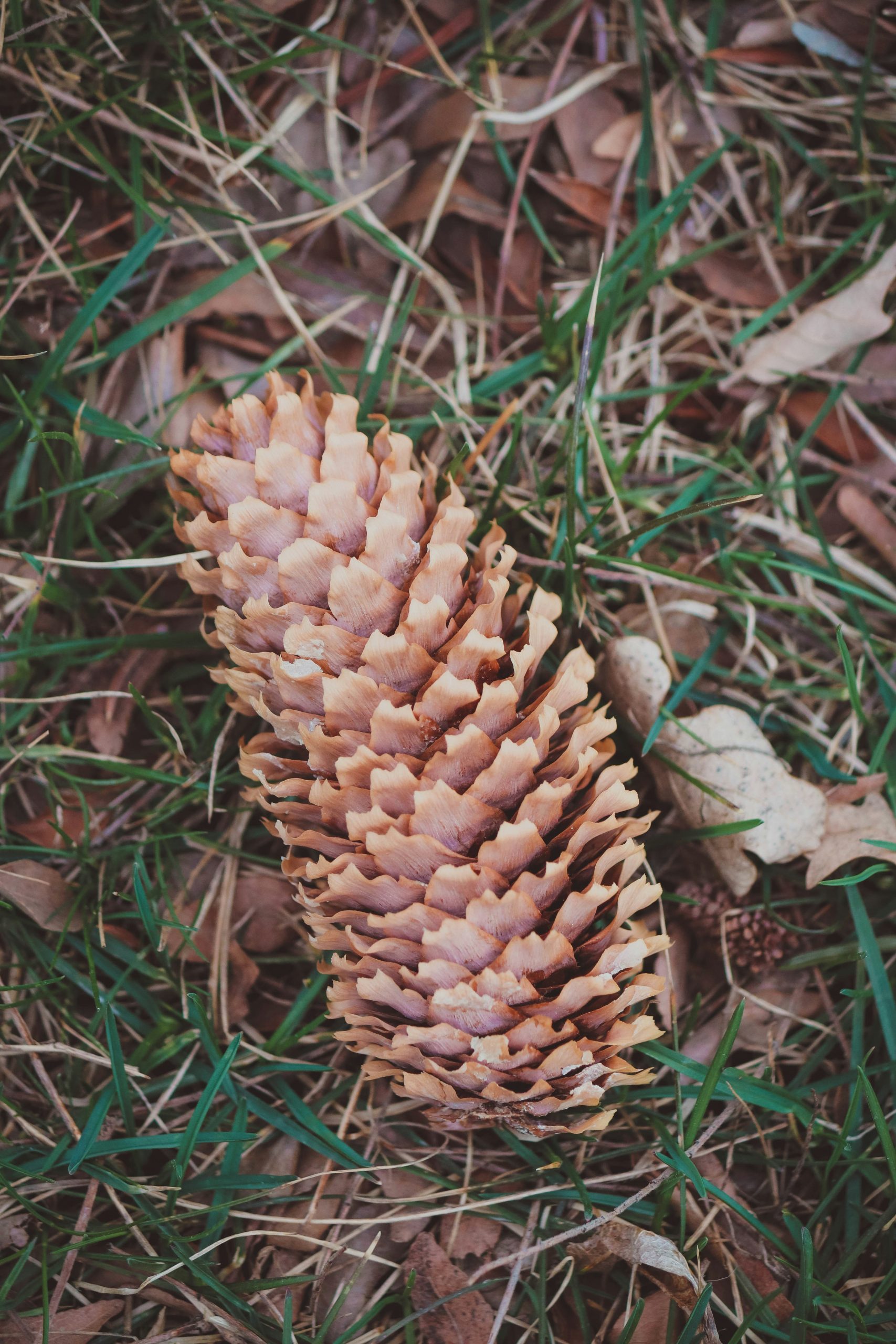
Troubleshooting Common Issues
Despite our best efforts, composting can sometimes present challenges. Here are some common issues we might encounter and how to address them.
Odor Problems
If your compost pile smells bad, it likely has too much green material and is turning anaerobic (lacking oxygen). Adding more brown materials and turning the pile regularly can help restore balance and eliminate odors.
Slowness in Decomposition
If your compost pile is slow to decompose, it might be too dry or lack sufficient green material. Adding some water or more nitrogen-rich items like spoiled fruits and vegetables can help.
Pest Management
To deter pests, ensure that your compost pile is properly balanced and maintained. Avoid adding meat, dairy, and oily foods, as these can attract animals. Covering your compost pile can also help keep pests away.
Types of Spoiled Food to Compost
Not all spoiled foods are created equal when it comes to composting. Here’s a guide on what kinds of spoiled food are best to compost and which are not.
Fruits and Vegetables
Fruits and vegetables are generally safe to compost, even if they’re spoiled. They break down quickly and add valuable nutrients to the compost.
Breads and Grains
Stale breads and grains can be composted, but they should be balanced with plenty of brown materials to avoid attracting pests.
Dairy and Meat Products
While technically compostable, dairy and meat can attract pests and create odors. It’s usually best to avoid adding these to a home compost pile.
Moldy Foods
Mold in compost is okay! Indeed, molds are part of the decomposition process and help break down organic material. Just ensure your compost pile has proper aeration.
Cooked Foods
Cooked foods, especially those with oils or fats, should be added sparingly. These can slow down the composting process and attract pests.
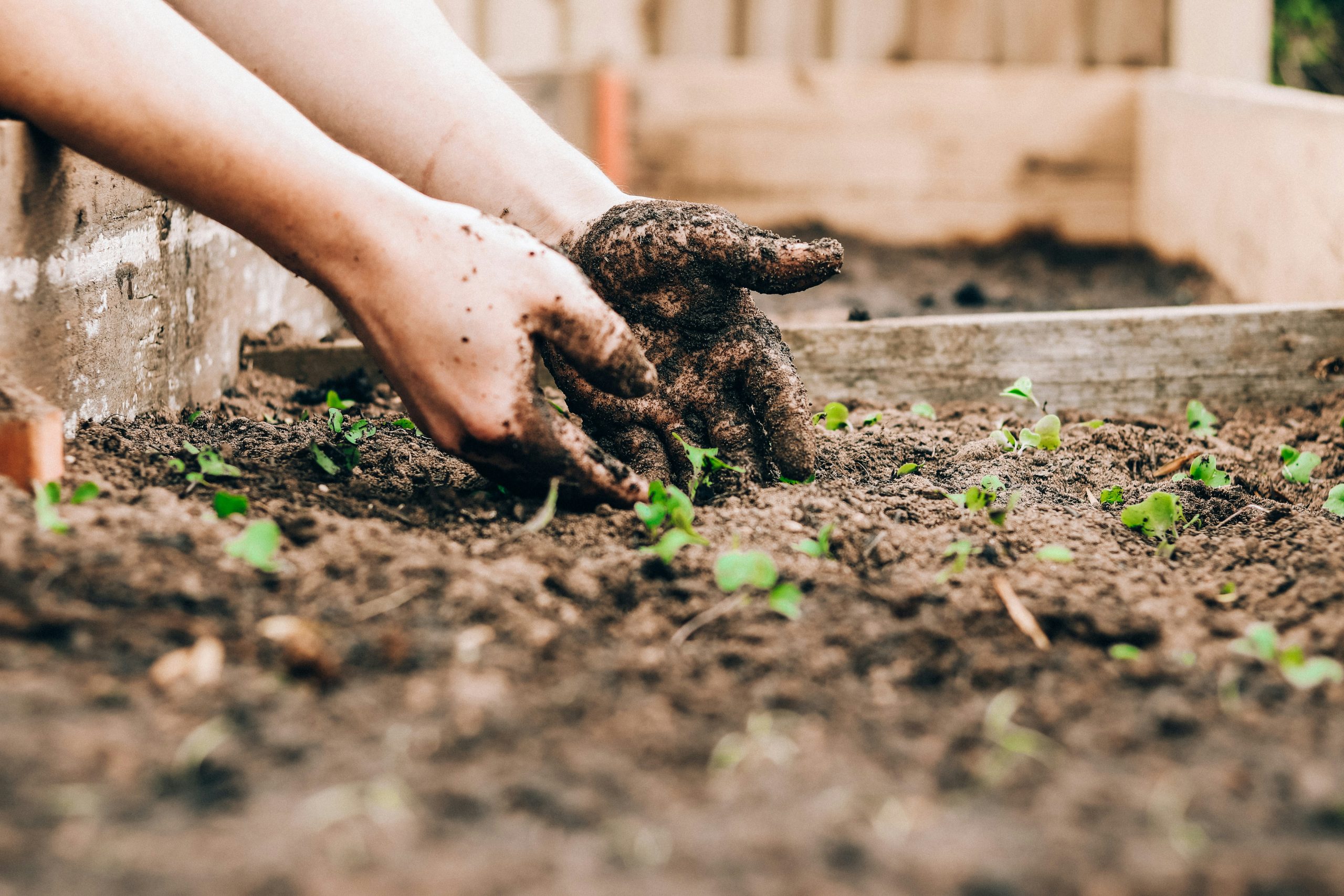
Enhancing Compost Quality
To make the most out of your compost pile and ensure the highest quality compost, consider these tips:
Use a Compost Thermometer
Monitoring the temperature of your compost pile ensures it stays within the optimal range (above 104°F or 40°C) for microbial activity. This helps target harmful pathogens that might be present in spoiled food.
Maintain the Right Moisture Level
The moisture content of your compost pile should be similar to a wrung-out sponge. Too dry, and decomposition slows; too wet, and it might become anaerobic.
Layering
Alternate layers of green and brown materials. This helps maintain balance and encourages faster, more efficient decomposition.
Benefitting the Environment
Composting has significant environmental benefits that go beyond just reducing waste. By composting our spoiled food, we contribute positively to our ecosystem.
Reducing Greenhouse Gas Emissions
Landfills are a major source of methane, a potent greenhouse gas. By composting organic waste instead of sending it to landfills, we significantly reduce our carbon footprint.
Enriching Soil
Compost enriches the soil by providing essential nutrients, improving its structure, and increasing its ability to hold water. This leads to healthier plant growth and reduced need for chemical fertilizers.
Biodiversity
Healthy compost supports a wide range of beneficial organisms, from bacteria and fungi to worms and insects. This biodiversity is crucial for maintaining healthy soil ecosystems.
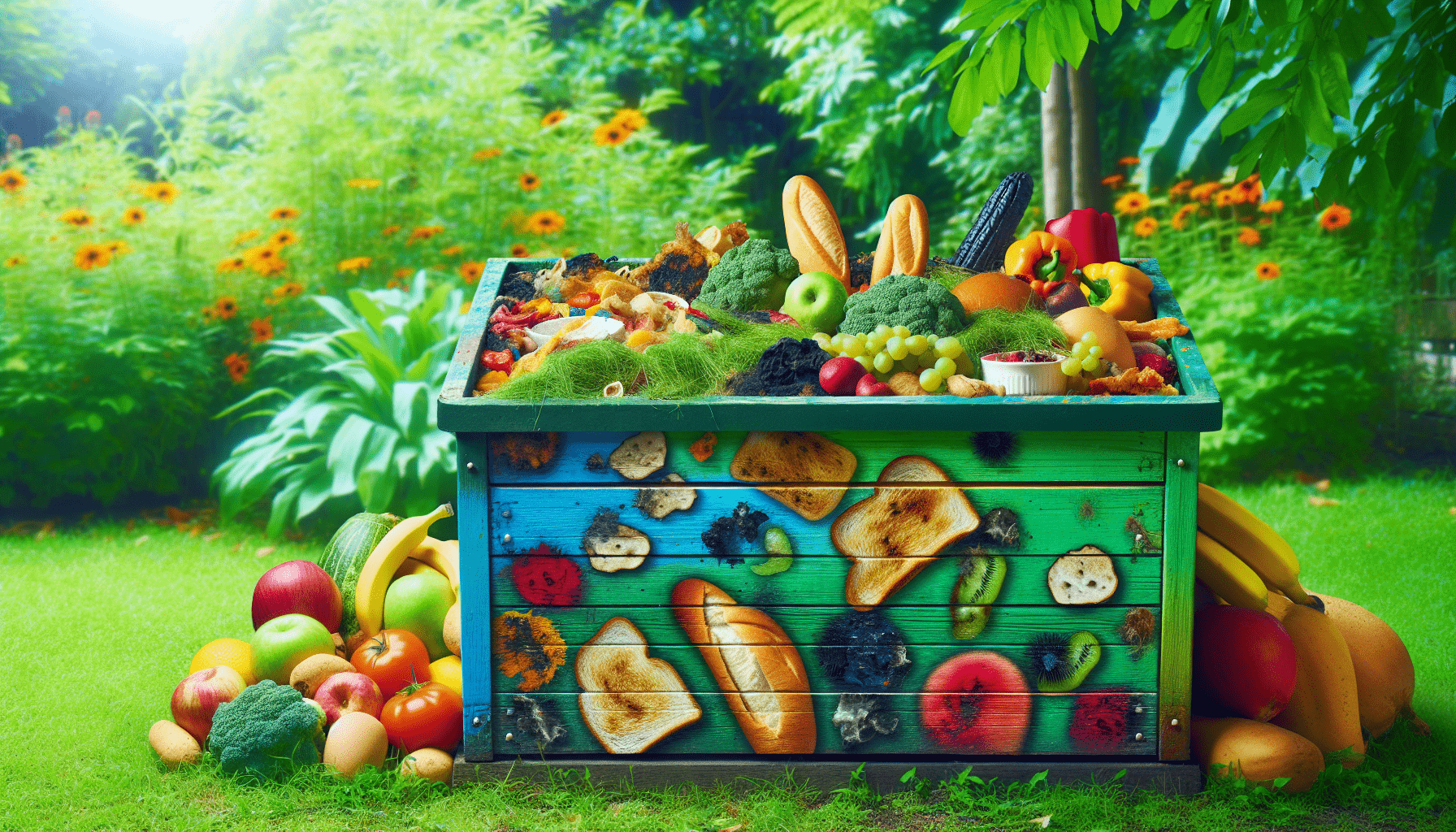
Composting Methods Suitable for Spoiled Food
Various composting methods suit different types and amounts of organic waste. Let’s explore some options and see which might be the best fit for composting spoiled food.
Backyard Composting
Traditional backyard composting is suitable for most spoiled fruits, vegetables, and other plant-based waste. We can control the balance of green and brown materials more easily in a traditional compost bin or open pile.
Vermicomposting
Vermicomposting, or worm composting, involves using worms to break down organic material. Spoiled fruit and vegetables are perfect for worm bins and provide vital nutrients for our industrious little helpers.
Bokashi Composting
Bokashi composting is an anaerobic process (no oxygen required) that allows for the composting of all types of food waste, including meats and dairy. It uses a special bran infused with beneficial microbes to ferment food scraps quickly.
| Composting Method | Suitable for Spoiled Food? | Advantages | Disadvantages |
|---|---|---|---|
| Backyard Composting | Yes | Easy to manage, inexpensive | Requires space, can attract pests |
| Vermicomposting | Yes | Fast decomposition, nutrient-rich output | Needs controlled conditions, worms have specific dietary requirements |
| Bokashi Composting | Yes | Compost all food waste, quick process | Requires special bran, needs a second step for complete decomposition |
Safety Considerations
While composting is a natural and generally safe process, certain precautions can help ensure safety and prevent potential issues.
Pathogens
Ensure your compost pile reaches adequate temperatures to kill off any potential pathogens that might be present in spoiled food. A well-maintained compost pile will naturally reach these temperatures.
Household Compost Safety
Keep household composting systems away from children and pets who might tamper with or accidentally ingest materials from the compost pile.
Proper Handling
Always handle spoiled food with care. Wash your hands after handling spoiled items to avoid cross-contamination in your kitchen.
Final Thoughts
So, can we compost spoiled food? Absolutely! By balancing green and brown materials, managing our compost piles effectively, and choosing suitable composting methods, we can convert even our most unappetizing waste into beneficial compost for our gardens. Composting isn’t just for the perfect scraps; it’s a way to reduce waste, enrich our soil, and connect with the natural cycles that sustain us.
Happy composting!

